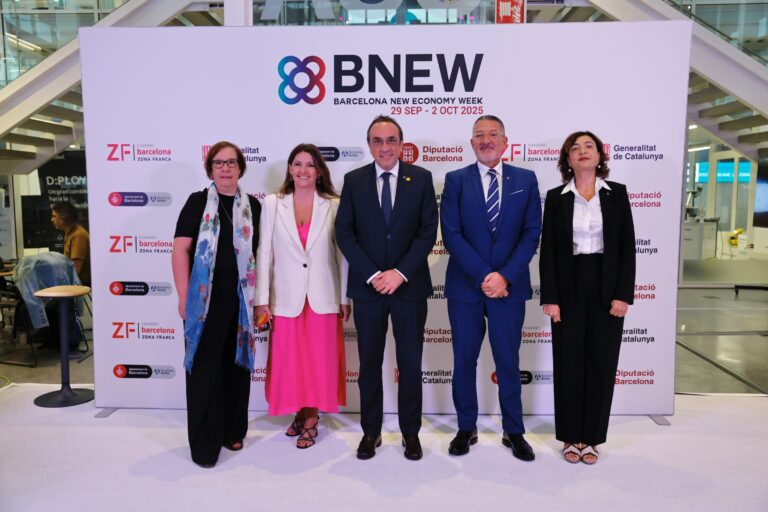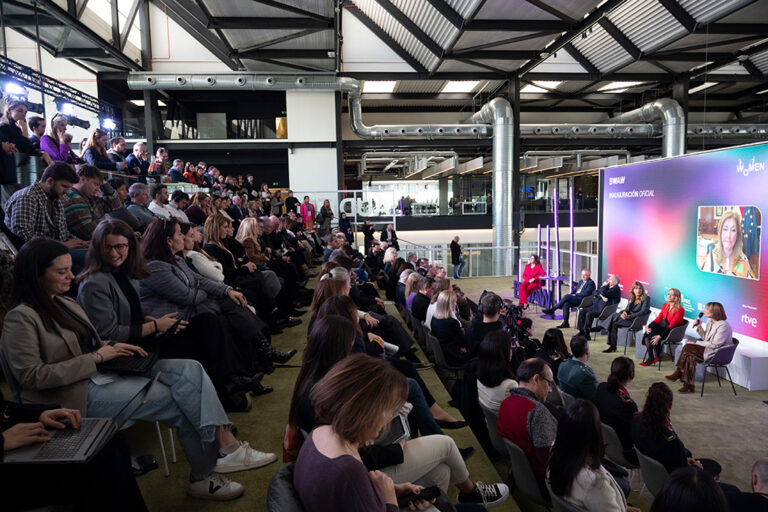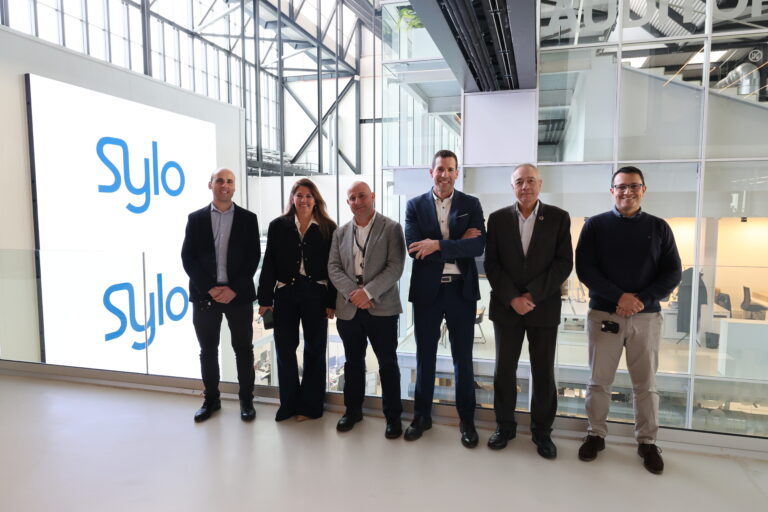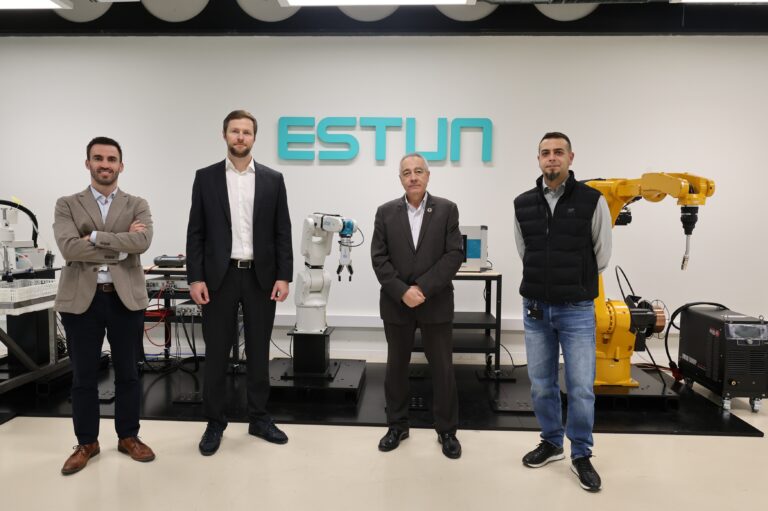Innovation, connectivity, collaboration, and sustainability shape the agenda of BNEW 2025

29 de September de 2025
- This morning marked the opening ceremony of the Barcelona New Economy Week (BNEW 2025), featuring participation from Josep Rull, President of the Parliament of Catalonia; Miquel Sámper, Minister of Business and Labor of the Government of Catalonia; Raquel Gil, Deputy Mayor of Barcelona; and Blanca Sorigué, CEO of the Consorci de la Zona Franca de Barcelona (CZFB).
- Talent creation, attraction, and retention were key topics of the day, with specific programs and strategies presented to build inclusive and sustainable teams.
- The challenges of new mobility as a strategic driver of innovation, sustainability, and competitiveness were also a central theme at BNEW.
Barcelona, September 29, 2025 – The sixth edition of the Barcelona New Economy Week (BNEW), organized by the Consorci de la Zona Franca de Barcelona (CZFB), kicked off this morning with verticals focused on Talent, Mobility, and Sustainability. Starting Wednesday, October 1, the focus will shift to Health, Aviation, and Digital Industry. Over four days, 320 speakers across 66 sessions and 100 hours of content will explore the key issues and challenges of the new economy.
BNEW 2025 is once again held at DFactory Barcelona, the internationally recognized Industry 4.0 ecosystem, featuring three television studios, a robust networking program, a showcase zone for the most disruptive new economy activities with 120 participating startups, and a full schedule of experiential activities. All sessions can be attended in person or followed online via the BNEW 2025 digital platform, reinforcing the event’s international reach, with registered participants from over 80 countries.
Opening Ceremony of the 6th Edition
BNEW 2025 officially opened its doors this morning with an inaugural ceremony attended by key institutional leaders, including Miquel Sámper, Minister of Business and Labor of the Government of Catalonia; Josep Rull, President of the Parliament of Catalonia; Raquel Gil, Deputy Mayor of Barcelona; and Blanca Sorigué, General Director of the Consorci de la Zona Franca de Barcelona (CZFB).
Blanca Sorigué, CEO of the CZFB, opened the event by highlighting BNEW’s ability “to connect sectors, people, and regions. We live in a global and interconnected economy where collaboration and the exchange of ideas are essential for progress. That’s why BNEW is much more than an event—it’s a meeting point for companies, startups, institutions, and professionals who want to lead change and build the future together.” She added, “We want BNEW attendees to leave with a clear vision of how new technologies like artificial intelligence, robotics, and digitalization are transforming how we interact, produce, distribute, and consume goods and services.”
The President of the Parliament of Catalonia, Josep Rull, highlighted the importance that BNEW has had in Catalonia: “it is an expression of optimism, of confidence in ourselves as a country.” Rull also added that the event “was born out of the need to understand the levers that move the world, and Catalonia has successfully grasped three paradigm shifts: from analog to digital, from tangible to intangible, and from linear to circular.”
Meanwhile, the Minister of Business and Labour of the Government of Catalonia, Miquel Sàmper, emphasized the relevance of the Barcelona New Economy Week (BNEW) 2025 as a way to “understand where the Catalan economy should be heading,” stating that it must revolve around five key pillars: adaptation, digitalization, internationalization, industrialization, and decarbonization.
Finally, Raquel Gil, Deputy Mayor of the Barcelona City Council, warned of “a society in which uncertainty has become one of the most common elements,” which, in her view, calls for spaces like BNEW to reach consensus on what the new economy should look like. In this regard, she urged a shift toward a model that includes “quality employment, improved business competitiveness, economic diversification, and environmental, social, and economic sustainability,” with the aim, in her words, of generating collective progress and a more cohesive society.
The four-day BNEW event features seven verticals with high impact on global digital transformation. Panels and activities for Talent, Mobility, and Sustainability take place on September 29 and 30, while Aviation, Health, and Digital Industry are scheduled for October 1 and 2.
Talent Acquisition and Retention: A Major Challenge for Companies
Talent was a central theme on BNEW’s opening day, as the rapidly evolving labor market demands constant adaptation. Sessions explored how reskilling opens new opportunities for professionals and companies to retain and develop talent, driving digital transformation and equality. HR directors from Carrefour Spain and Barceló Hotel Group, along with Acciona’s Director of Diversity and Inclusion and the Founder of La Casa de Carlota, shared strategies for building inclusive, diverse, and sustainable teams, with a focus on female leadership and tech talent.
Another standout session was “Catalonia, Talent Factory,” which brought together leaders from Spain’s five main youth entrepreneurship programs: Mobile World Capital Barcelona, Princess of Girona Foundation, CZFB, Talent Factory, and Barcelona FP Foundation. In 2025, these programs developed 25 projects impacting over 80,000 young people—examples of how to create and nurture talent.
Shared, Connected, and Autonomous Mobility
In the BNEW Mobility session “Building Bridges Toward New Mobility,” experts reflected on the future of transportation, predicting it will be shared, connected, and autonomous—transforming how we move and use urban space, and challenging the need for car ownership. The session emphasized that technological innovation must be accompanied by public policy and cultural change to enable a transition to more sustainable, accessible, and efficient transport models. The climate emergency demands immediate action, with a goal to reduce transport emissions by 19% before 2030, requiring a rethink of urban logistics, city design, and the role of new actors like drones.
BNEW Mobility also addressed the challenges cities face in transforming mobility to be more sustainable and people-centered, the role of public transport, and the importance of electric infrastructure to ensure electrification and decarbonization. It showcased how innovation is redefining mobility beyond major cities through smart platforms and pioneering rural initiatives, ensuring mobility rights for all citizens.
Innovation for Sustainable Food Production
Finally, the BNEW Sustainability vertical explored the challenges of producing food sustainably, prioritizing environmental care and human health. Technological advances in agriculture are helping optimize limited resources—water, energy, and soil—to meet the demands of a changing climate and growing population, positively impacting the quality, safety, and sustainability of the agri-food chain.
BNEW Talent also reflected on sustainable tourism, which goes beyond meeting international agendas. It represents a commitment to improving public policies, ensuring destinations leave a positive legacy, and boosting business competitiveness. The private sector is increasingly aware of its key role in achieving a respectful, rigorous, and responsible tourism model.



